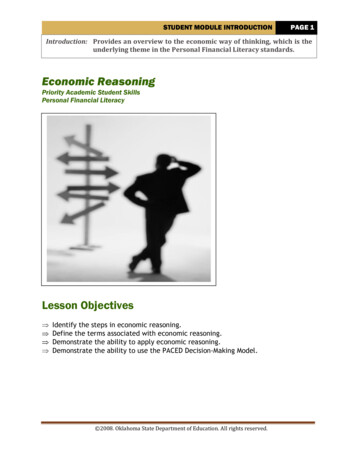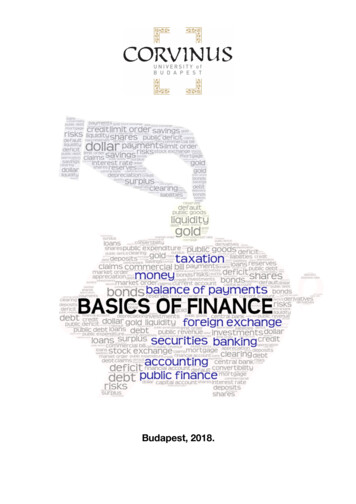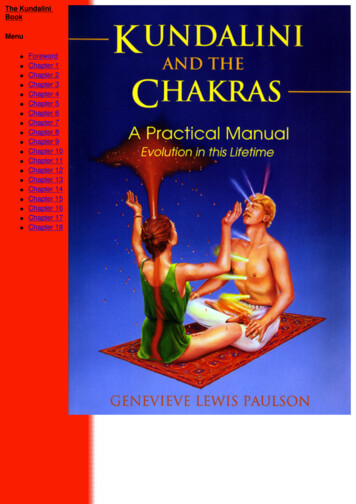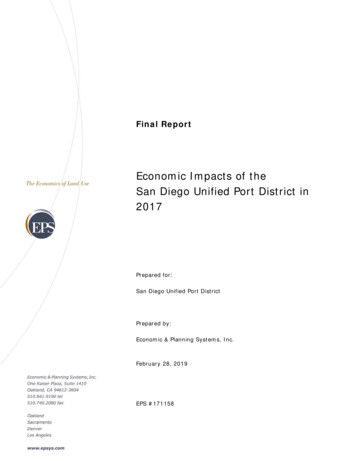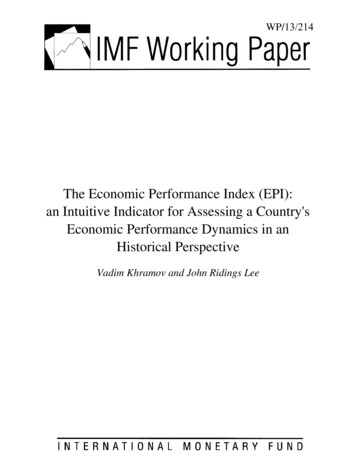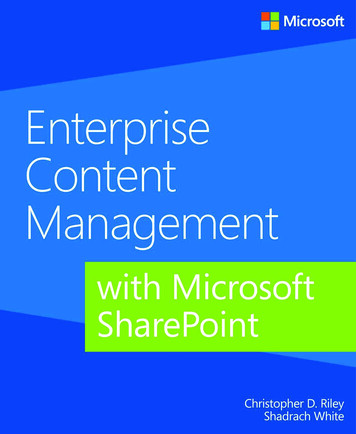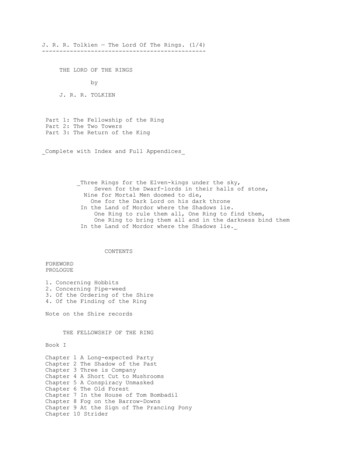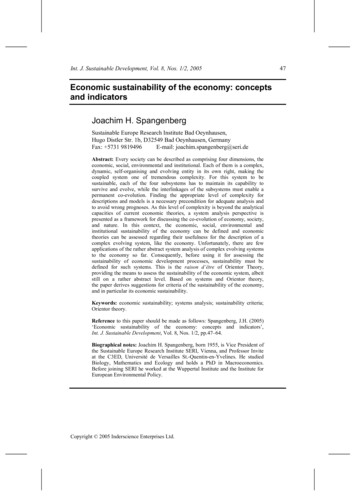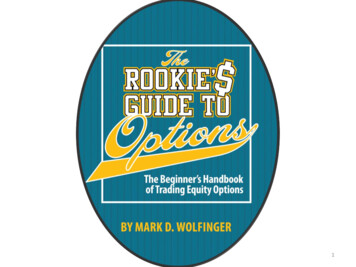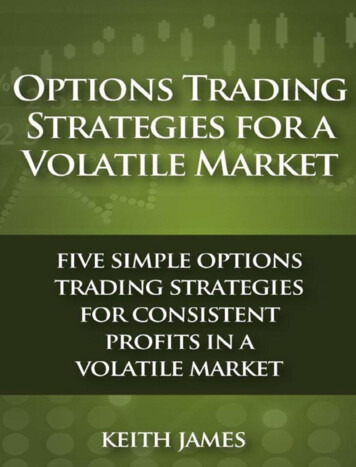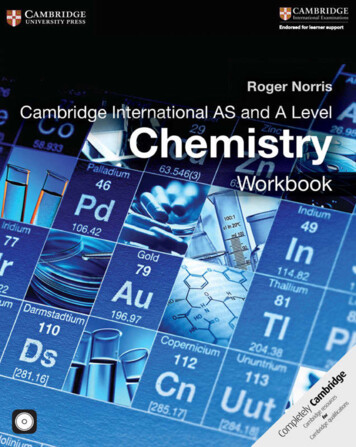
Transcription
Chapter 1:AnEconomicWay ofThinking
Adam Smith Father of Economics Said competition and a freemarket is key to a healthyeconomyYour age group is very powerful!Think about how you influence companies about spendingmoney on manufacturing and advertising.
What is Economics? The study of how people choose to use their limited resourcesto satisfy their unlimited wants. Economics deals with things of any VALUE, not just monetaryvalueo Everyone has different values & wantsWhat I have .What I WANT .
What is Economics? People make choices. People’s choices involve costs. People respond to incentives in predictable ways.
Economics VocabularyMicroeconomics – economic decision making of individuals,households, and businessesMacroeconomics – the workings of the economy as a wholePositive Economics – focuses on facts and cause and effectrelationships; “how things are”Normative Economics – uses value judgments and opinions;“how things ought to be”
Scenarios to Figure OutWhich type of economics would be used for eachscenario –(2 answers for each question)Macro vs. MicroPositive vs. Normative1. Should you use part of your paycheck to buy a yearbook or payyour cellphone bill ?2. What could Broad Run do to reduce the sports fee required toplay sports?3. What are the costs to build President Trump’s wall betweenMexico and the U.S.?4. Should the U.S. change the provision that allows the Senate &Congress to be paid when the federal government shuts down?
#1 Scarcity Forces Tradeoffs Limited resources force people to make choices and facetradeoffs when they choose Scarcity- means in short supply Shortages are temporary (can be made again if theresources are available)
Scarcity Forces Tradeoffs PracticeWhat are the tradeoffs of driving to school vs. taking the busto school?What are some of the tradeoffs you make when you decide todo sports/clubs?What are the tradeoff to learning a new language beside theone you speak usually?
#2 Costs vs. Benefits Costs – what you spend in money, time, effort, or other sacrifices frommaking a decision Benefits – what you gain from something in terms of money, time,experience, or other improvements from making a decision
Costs vs. Benefits Example
#3 Thinking at the Marginwhen we decide to add or subtract a little to or from what wealready haveMarginal benefit- what is gained by adding one more unit to an activitymarginal benefit marginal cost do more of itMarginal cost- what is given up by adding one more unit to an activitymarginal cost marginal benefit do less of it
Thinking at the Margin PracticeIf I sleep another 30 minutes, what do Igive up?CostsBenefits
#4 Incentives Matter Something that motivates a person to do something It can be either positive or negativeCellphone
#5 Trade Makes People Better Off We should focus on what we do well, and then trade withothers for the other stuff we need/want
#6 Markets Coordinate Trade Any arrangement that brings buyers and sellers together todo business with each other Free markets are ones in which buyers and sellers tradeuntil both are satisfiedInvisible Hand - a term used by Adam Smith to describe hisbelief that individuals seeking their economic self-interestactually benefit society more than they would if they tried tobenefit society directly.What would be an example of the Invisible Handat work?
#7 Future Consequences Count Decisions made today have consequences not only fortoday, but also for the future Law of unintended consequences – actions of people andgovernments always have effects that are not expectedFor example, off thecoast of Florida, old tireswere used to build reefsto attract fish;unfortunately, over time,the tires began todisintegrate, polluting thewater and the tires had tobe removed
Future Consequences Count PracticeCan you think of an example of FutureConsequences Count Principle?
What Tools Do Economists Use?Scientific Method involves posing a question researching the question developing a hypothesis conducting studies and collectinginformation analyzing the information evaluating the hypothesisGraphs show the relationship between two Ygiven sets of data It is a simplification & does notrepresent all the variablesX
Economic Models – asimplified representation ofreality that allowseconomists to focus on theeffects of one change at atime Can take the form ofan equations,computer program ordiagram Useful for explainingand predicting how theeconomy works
Works Cited umor/?lp nmeaning/
Jan 06, 2020 · Economics Vocabulary Microeconomics – economic decision making of individuals, households, and businesses Macroeconomics – the workings of the economy as a whole Positive Economics – focuses on facts and cause and effect relationships; “how things are” Normative Economics – us

